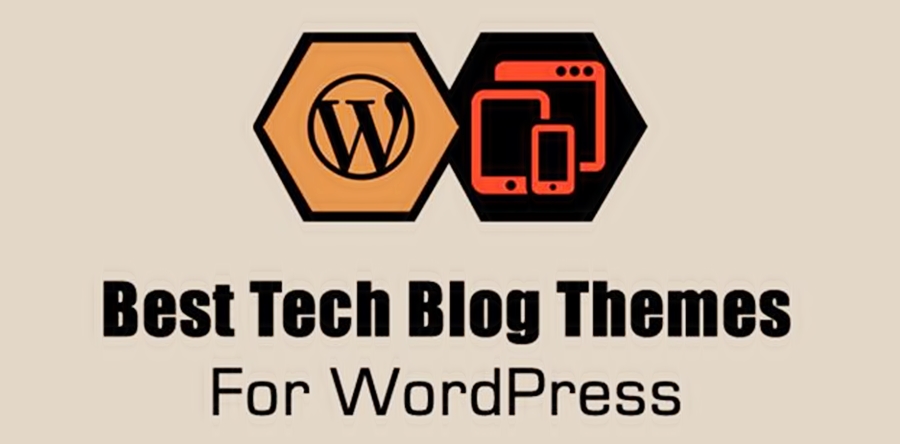Top Factors to Follow the Best tech blog for Tech News and Tutorials
Top Factors to Follow the Best tech blog for Tech News and Tutorials
Blog Article
Just How Blockchain Modern Technology Is Revolutionizing Information Safety
Blockchain innovation is fundamentally altering the landscape of data protection by presenting a decentralized structure that guarantees enhanced openness and resilience. Unlike traditional systems, which depend on central data databases, blockchain disperses data throughout a network, lessening vulnerabilities and solitary factors of failing. Making use of innovative cryptographic strategies makes certain that data continues to be tamper-proof, cultivating count on amongst customers and stakeholders. As markets rapidly adjust to this innovation, concerns occur concerning its wider influence and possible obstacles. What ramifications does this shift hold for future information security techniques and regulative structures? The solutions may stun you (Best tech blog).
The Basics of Blockchain
Blockchain technology, a cutting edge principle in digital information management, basically changes just how details is saved and protected. At its core, a blockchain is a dispersed ledger that videotapes deals throughout a network of computers, guaranteeing transparency and immutability. The modern technology operates a chain of blocks, each having a list of deals. As soon as a block is filled up, it is time-stamped and linked to the previous block, producing a chronological chain.
Trick to understanding blockchain is the hashing process, which secures deal information into a distinct alphanumeric code. This cryptographic feature makes certain that any type of change in the transaction information causes a completely different hash, consequently securing versus meddling. The agreement device, an additional important part, verifies and validates new transactions through a network of nodes, thus getting rid of the need for a central authority.
Moreover, blockchain's append-only structure makes certain that data, once included, can not be removed or changed. This particular guarantees a irreversible and verifiable document of purchases, fostering trust amongst individuals. Consequently, blockchain gives a robust structure for information honesty, offering industries a dependable method for tracking and managing digital details in a secure, clear way.
Decentralization and Safety
Decentralization, a core concept of blockchain innovation, significantly enhances information protection by distributing control across a network instead than depending on a particular, central entity. This distribution mitigates the threat of solitary factors of failing, which are widespread in typical central systems. By dispersing data across many nodes, blockchain makes sure that also if one node is endangered, the whole network continues to be secure. This redundancy not only strengthens the integrity of the data yet likewise enhances its resilience to cyberattacks and system failings.

Additionally, decentralization equips users with higher control over their information. Each individual in the network has accessibility to the whole blockchain, permitting them to confirm and investigate deals individually. This transparency promotes trust amongst customers, as they do not have to depend on a central authority to ensure information stability. Generally, decentralization contributes in boosting information protection in blockchain networks.

Cryptographic Techniques
At the heart of blockchain modern technology, cryptographic strategies play a pivotal function in protecting data, ensuring both privacy and stability. These strategies are foundational to the blockchain's capacity to safely tape purchases in a decentralized manner. Cryptography in blockchain utilizes a mix of uneven and symmetric algorithms to encrypt data, making it easily accessible only to licensed parties - Best tech blog. Public and private vital pairs are main to this procedure, permitting protected authentication and identification confirmation without exposing delicate information.
Hash features are an additional important component, changing input data right into a fixed-size string of characters, efficiently developing a distinct electronic finger print for each block. This ensures that any kind of attempt to alter the data will certainly result in an entirely different hash, thus maintaining the immutability of the blockchain. Electronic trademarks validate the authenticity and integrity of deals, offering a layer of non-repudiation.
The decentralized nature of blockchain, integrated with robust cryptographic methods, removes the requirement for middlemans, reducing possible vulnerabilities. As blockchain modern technology evolves, developments in cryptography such as zero-knowledge evidence and homomorphic file encryption proceed to improve security procedures, further strengthening information defense in this cutting edge electronic ledger system.
Use Instances Across Industries

In the health care sector, blockchain makes sure the protected storage space and sharing of individual documents, promoting interoperability while guarding delicate data from unauthorized gain access to. This innovation encourages people with control over their clinical history and promotes seamless control among medical care providers.
Supply chain monitoring benefits significantly from blockchain's immutable ledger, which makes certain traceability and credibility of products from origin to consumer. By enhancing transparency, blockchain helps alleviate problems such as counterfeiting and unethical sourcing.
Furthermore, blockchain's decentralized nature is improving the energy industry by allowing peer-to-peer energy trading, where customers can buy and sell excess renewable resource straight. This promotes a much more lasting and efficient energy community.
In the world of intellectual residential or commercial property, blockchain provides a tamper-proof platform for creators to register why not try here and shield their jobs, making sure rightful attribution and reasonable compensation. These diverse use cases underscore blockchain's duty as a crucial pressure in redefining data safety and security throughout industries.
Future of Data Security
As we seek to the future of data security, blockchain innovation is poised to play a pivotal role in securing digital details. With its decentralized and unalterable features, blockchain provides a robust structure for securing sensitive get redirected here information against unauthorized gain access to and cyber risks. This technology makes certain that once data is taped, it is virtually difficult to modify without discovery, therefore offering a considerable advantage over traditional information storage methods.
The combination of blockchain with other innovative modern technologies, such as expert system and the Net of Points (IoT), is expected to boost information protection techniques better. By leveraging smart contracts, organizations can apply and automate protection methods, lowering human mistake and raising efficiency. In addition, blockchain's capacity to give traceable and clear transactions will certainly bolster trust and liability in data administration methods.
As regulative landscapes develop, blockchain's compliance-friendly nature will come to be progressively pertinent. It can aid organizations fulfill strict data defense guidelines, such as the General Information Defense Law (GDPR) and the California Consumer Personal Privacy Act (CCPA), by offering proven records of data handling tasks. Eventually, blockchain's special features setting it as a transformative device in the ongoing mission to protect the digital globe against ever-evolving cyber hazards.
Final Thought
Blockchain innovation stands for a standard shift in data protection by leveraging decentralization and cryptographic strategies to enhance transparency, trust fund, and information stability. As cyber threats progress, blockchain arises as an important tool for durable data defense across different markets.
Blockchain modern technology is essentially altering the landscape of data safety and security by introducing a decentralized structure that guarantees enhanced openness and strength. Unlike standard systems, which depend on centralized data databases, blockchain distributes data across a network, decreasing susceptabilities and solitary factors of failing.Decentralization, a core concept of blockchain modern technology, substantially improves information safety and security by dispersing description control across a network rather than depending on a single, central entity.At the heart of blockchain innovation, cryptographic strategies play an essential function in guarding data, guaranteeing both discretion and stability.Blockchain modern technology stands for a standard shift in data safety and security by leveraging decentralization and cryptographic methods to improve openness, depend on, and data honesty.
Report this page